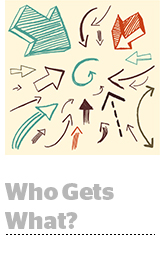 Here’s today’s AdExchanger.com news round-up… Want it by email? Sign up here.
Here’s today’s AdExchanger.com news round-up… Want it by email? Sign up here.
Telecom At Me, Bro
Comcast is planning a $31 billion bid to purchase all of UK broadcaster Sky – though Comcast CEO Brian Roberts told the The Wall Street Journal it would also accept a majority stake. Fox’s 39% stake in Sky was a big part of Disney’s $52.4 billion takeover of 21st Century Fox. Disney and Fox’s deal could proceed regardless of Comcast’s bid for Sky. Disney, after all, has the right to approve any sales of Sky shares. “It’s unclear whether Disney would want to end up partners with Comcast,” wrote the Journal. Of course, Fox could hold onto its 39% stake for the time being, which would allow Comcast to buy 61% of Sky. Elsewhere in the portfolio, Disney’s acquisition of 21st Century Fox gave it two-thirds of Hulu, with Comcast holding the remaining third.
Death By Algorithm
Little Old YouTube
The SEC has been probing Google for six months to find out why the company doesn’t break out revenue for YouTube. The exchange was sparked by new revenue-recognition rules requiring investor disclosures to cover material revenue lines and be on par with information available to chief executives. Google said in a statement to MarketWatch that it shouldn’t have to break out YouTube revenue because it is “largely a single online advertising business, with other smaller product areas within the Google ecosystem.” And because Google is part of Alphabet, it claims that a top exec such as holding company CEO Larry Page – who doesn’t actively run Google – gets the same information as investors. MarketWatch calls these arguments “specious.” YouTube’s business is bigger than either Twitter or Snap, and the notion that top Google executives aren’t getting YouTube numbers to aid in their decision-making is absurd. More.
The Subscription Prescription
News publishers are angling for subscription sign-ups because the value of desktop and mobile inventory isn’t enough to make up for print ad losses and social media platforms don’t provide enough monetization. While many media companies have had a good year on the subscription front, there may be a reckoning for those who think monthly reader payments will become a meaningful revenue stream. “A lot of people are going, ‘Reader revenue, it’s working for The New York Times, it’s working for specialty publications; that’s our path,’” former NPR CEO Vivian Schiller told Digiday. “I’m afraid for most news publishers, it’s going to end in tears.” More. It could be particularly painful if the spate of sign-ups following the 2016 election drops after a year or two, since the subscription marketing funnel is expensive and requires long-term reader value to recoup upfront costs.
But Wait, There’s More!
You’re Hired!
This post was syndicated from Ad Exchanger.

More Stories
oOh!media’s network shines spotlight on female-led businesses this International Women’s Day
Dentsu Aotearoa takes top honour at 2025 HRNZ Awards
Exclusive: How Disney and Prudential Surprised Oscars Viewers in New Ads